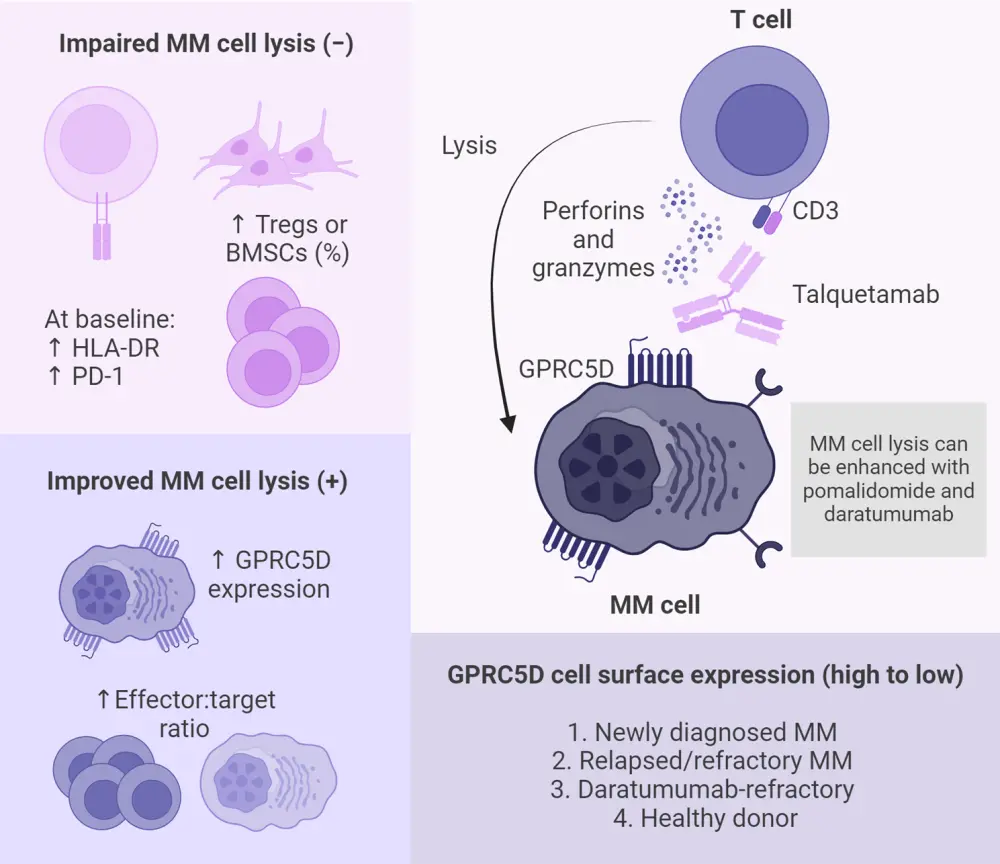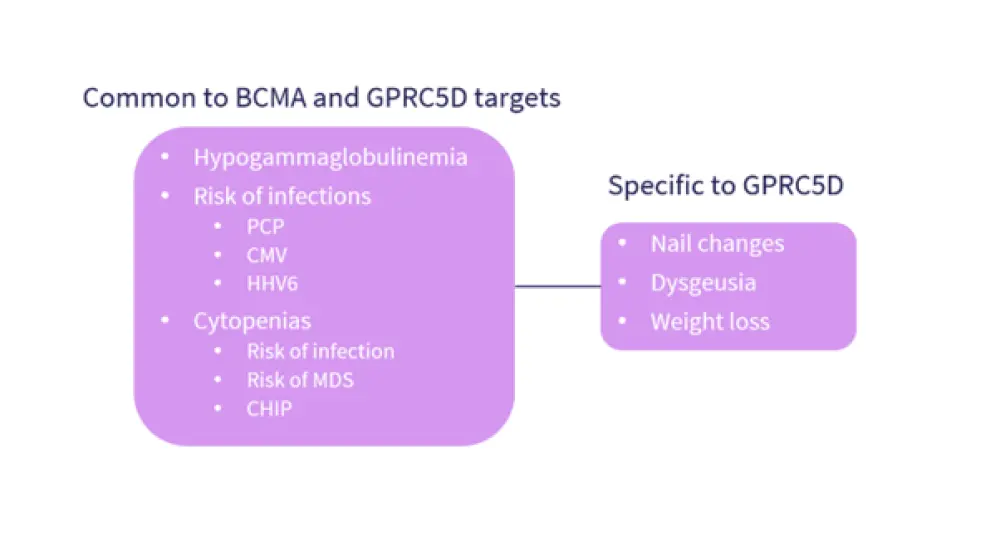All content on this site is intended for healthcare professionals only. By acknowledging this message and accessing the information on this website you are confirming that you are a Healthcare Professional. If you are a patient or carer, please visit the International Myeloma Foundation or HealthTree for Multiple Myeloma.
The mm Hub website uses a third-party service provided by Google that dynamically translates web content. Translations are machine generated, so may not be an exact or complete translation, and the mm Hub cannot guarantee the accuracy of translated content. The mm and its employees will not be liable for any direct, indirect, or consequential damages (even if foreseeable) resulting from use of the Google Translate feature. For further support with Google Translate, visit Google Translate Help.
The Multiple Myeloma Hub is an independent medical education platform, sponsored by Bristol Myers Squibb, GSK, Johnson & Johnson, Legend Biotech, Pfizer, Roche, and Sanofi. The levels of sponsorship listed are reflective of the amount of funding given. View funders.
Now you can support HCPs in making informed decisions for their patients
Your contribution helps us continuously deliver expertly curated content to HCPs worldwide. You will also have the opportunity to make a content suggestion for consideration and receive updates on the impact contributions are making to our content.
Find out more
Create an account and access these new features:
Bookmark content to read later
Select your specific areas of interest
View multiple myeloma content recommended for you
Do you know... In which clinical scenario would immunoglobulin replacement therapy be considered?
Video series
During the Multiple Myeloma Hub virtual symposium held on March 11, 2024, “Current and future perspectives for bispecific antibodies in multiple myeloma: Learnings from 2023,” Sergio Giralt, Memorial Sloan Kettering Cancer Center, New York, US, delivered a presentation on the practical management of adverse events with immunotherapies in multiple myeloma.
Sergio Giralt provided an overview of the safety of bispecific antibodies in multiple myeloma, highlighting the common long-term effects associated with B-cell maturation antigen and G-protein coupled receptor family C group 5 member D targets (Figures 1 and 2). Then, Giralt shared recommendations for the management of late and delayed toxicities, including prophylactic and monitoring strategies.
Figure 1. Rationale for GPRC5D as a therapeutic target in MM*

BMSC, Bone marrow stromal cells; DARA, daratumumab; GPRC5D, G protein-coupled receptor class C group 5 member D; HD, human donor; HLA, human leukocyte antigen; MM, multiple myeloma; PD, programmed death; POM, pomalidomide.
*Adapted from Smith, et al.1
Figure 2. Long-term effects of bispecific antibodies*

BCMA, B-cell maturation antigen; CHIP, clonal hematopoiesis of indeterminate potential; CMV, cytomegalovirus; GPRC5D; G protein-coupled receptor class C group 5; HHV6, human herpesvirus 6; MDS, myelodysplastic syndrome; PCP, Pneumocystis pneumonia.
*Provided by Sergio Giralt.
This independent medical activity was funded by Janssen and Bristol Myers Squibb. All content was developed independently by the faculty. The funders were allowed no influence on the content of this activity.
References
Please indicate your level of agreement with the following statements:
The content was clear and easy to understand
The content addressed the learning objectives
The content was relevant to my practice
I will change my clinical practice as a result of this content


 Sergio Giralt
Sergio Giralt



